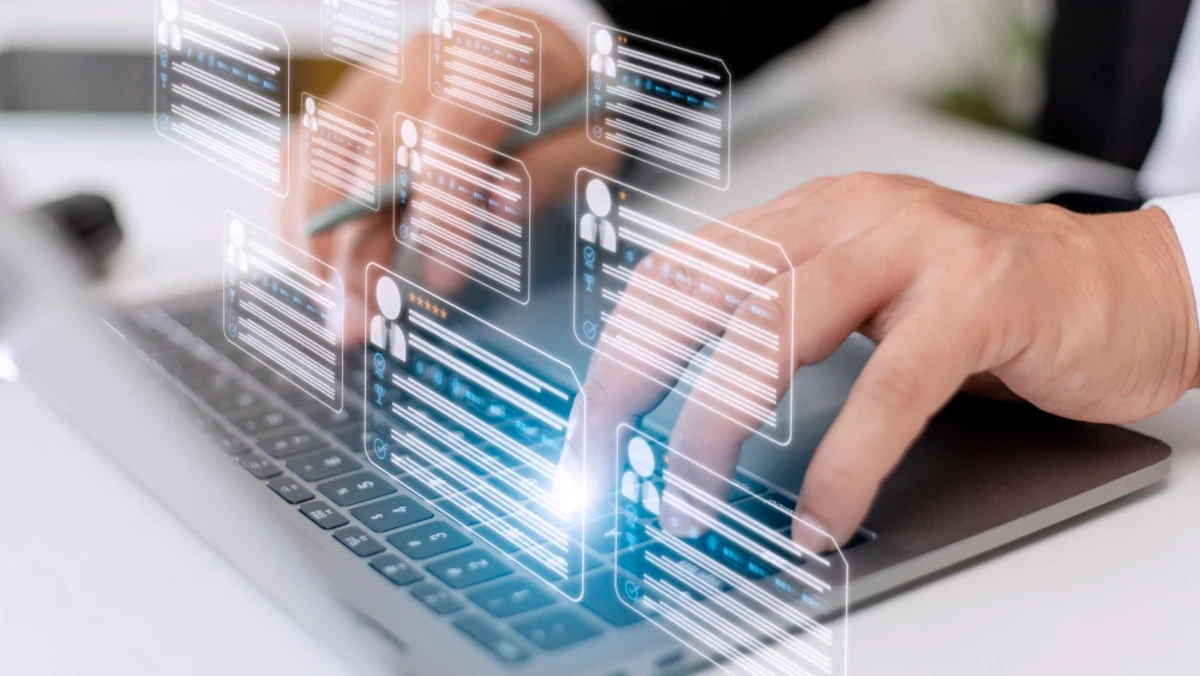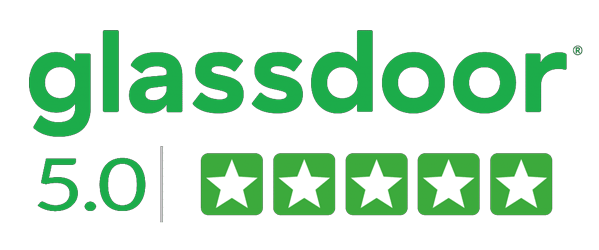
What Is HR Software and why do you need it for your business?
HR software is a technology tool used by institutions and companies to handle their human resource operations. It’s also known as HRIS or HCM software.
This system helps with various tasks related to administrators and employees, like keeping employee data, managing payroll, hiring, training, evaluating performance, leaves, bonuses, and more.
Many companies now rely on this software because it makes the traditional HR management process easier.
This article explores HR software, its advantages and features, the available types, and how to choose the right one for your business.
What is HR software’s definition, uses, and types?
HR software is a category of computer applications and tools designed to manage and organize various human resource management tasks and processes within an organization.
HR software provides a centralized database or system that allows HR professionals to store and access employee information, such as personal details, employment history, performance records, and leave balances.
It simplifies administrative tasks by automating processes like employee onboarding, attendance tracking, time and attendance management, and generating payroll and tax reports.
Additionally, it often includes self-service portals enabling employees to access their information, submit leave requests, update personal details, and view company policies.
The 3 types of HR Software
HR software systems have three main types:
1- Human Resources Management System (HRMS)
HRMS is used to track the performance of the company’s employees and their training needs, in addition to tracking holidays and vacations.
It also predicts employee needs for future open positions and appointments. It is usually used to assess employee satisfaction with the work and tasks entrusted to them through surveys within the system.
2- Human Capital Management (HCM)
HCM software blends many features; instead of having payroll software, attendance tracking software, productivity reporting and analytics software, HCM software integrates all these functions into one platform.
It can help the company plan for its future staffing needs by sharing information with other business software, like enterprise resource planning software (ERP). HCM software can be offered as a separate system or as an integral component of a comprehensive technological solution.
3- Human Resources Information System (HRIS)
An HRIS is a system that keeps detailed records of employees. It creates a profile for each employee with their contact details, job number, title, attendance, leaves, salaries, and benefits.
The benefits of using this system are that it saves time for HR staff since it collects and organizes all the employee information in one place, making it easy to find and update when needed.
This system provides the minimum HR management process and is limited only to reviewing information, following up on requests, and some simplified features.
What are the key features of HR software?
The key features of HR software are:
1. Employee Database Management
HR software stores and manages essential employee information such as personal details, employment history, performance records, benefits, and more. It provides a centralized platform for HR professionals to access and update this information as needed.
2. Recruitment and Onboarding
HR software streamlines recruitment by facilitating job posting, applicant tracking, resume screening, interview scheduling, and offer management. It also assists in onboarding, ensuring a smooth transition for new employees.
3. Time and Attendance Tracking
HR software helps track employee attendance, leave balances, and time-off requests. It simplifies the process of managing and approving employee absences, ensuring accurate payroll calculations.
4. Performance Management
HR software provides tools to set performance goals, conduct regular evaluations, and track employee progress. It enables organizations to identify high-performing employees, assess training needs, and provide feedback for professional growth.
5. Training and Development
HR software facilitates the creation and delivery of training programs. HR professionals can track employee training progress, schedule courses, and evaluate their effectiveness.
6. Payroll and Benefits Administration
HR software automates payroll calculations, tax deductions, and benefits administration, reducing errors and ensuring timely and accurate employee payments.
7. Employee self-service
HR software provides employees with a portal to access their information, update personal details, request time off, and view company policies.
What are the 5 Benefits of HR software?
Implementing HR software offers several benefits to organizations:
1. Increased Efficiency
HR software automates repetitive tasks, reducing manual effort and increasing overall efficiency. It saves time for HR professionals, enabling them to focus on strategic initiatives and employee engagement.
2. Improved Accuracy
By minimizing manual data entry and automating calculations, HR software reduces the risk of errors and ensures accurate information across all HR processes.
3. Enhanced Compliance
HR software helps organizations comply with employment laws and regulations by providing tools for accurate record-keeping, leave management, and reporting. It can also provide employment law advice and updates.
4. Data Analytics
HR software offers data analytics capabilities, allowing organizations to gain valuable insights into workforce trends, performance metrics, and employee engagement. These insights help make informed decisions and optimize HR strategies.
5. Better Employee Experience
HR software improves the employee experience by providing self-service portals for accessing personal information, submitting leave requests, accessing training materials, and more. It enhances communication between HR and employees, fostering transparency and engagement.
How to choose the right HR software for your business
When deciding to develop or introduce HR software into your company, it is necessary to choose an HR software that allows for managing human resources effectively.
The HR software differs from one company to another; you often need programmers who can design or modify it in a way that suits your company’s work mechanism.
- Determine your company’s requirements.
The first step to choosing the right HR software is to collect observations from HR professionals regarding the company’s HR operations and ways to measure the efficiency of those resources.
The process of collecting requirements can be done through personal interviews, with groups that share specific characteristics, such as department managers, or by answering questionnaires that clarify opinions.
- Evaluate existing systems.
It is necessary to verify the efficiency of the systems currently used within the company and their ability to meet the needs, in addition to analyzing the expenses associated with maintaining information in the now approved systems.
The systems are evaluated by measuring the achievement of the current software and the achievement of the new software, based on the evidence of the work of the software and the experiences of companies that have adopted the programmes proposed to work within your company.
- Prepare the necessary documents.
Organize the information and data you have collected into documents that allow the information to be presented in an organized manner to all stakeholders, in addition to the information necessary to prepare a feasibility study and adopt appropriate HR software within your company.
- Determine the benefits gained.
It is necessary to analyze the HR software available to determine the most appropriate software and the competitive advantage provided when it is adopted within your company.
Competitive advantages differ from one program to another, as there are programs that provide speed in implementation and others that increase the quality of the work provided.
The experience of decision-makers lies in choosing the software that achieves the greatest benefit for the company based on its vision and plans.
- Gain the support of the largest number of decision-makers.
After selecting the right HR software, it is necessary to identify the main stakeholders to adopt the software within your company, in addition to gaining the support of decision-makers and meeting their individual needs.
The conclusion:
The Human Resources Director must support the software purchase because it is essential for HR operations and competency assessment. The software’s successful adoption should align with the Director’s vision and work principles.
Need to grow your business using modern HR strategies? Check out our affordable and flexible HR solutions.


